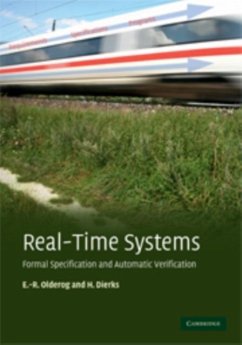Real-time systems need to react to certain input stimuli within given time bounds. For example, an airbag in a car has to unfold within 300 milliseconds in a crash. There are many embedded safety-critical applications and each requires real-time specification techniques. This text introduces three of these techniques, based on logic and automata: duration calculus, timed automata, and PLC-automata. The techniques are brought together to form a seamless design flow, from real-time requirements specified in the duration calculus; via designs specified by PLC-automata; and into source code for hardware platforms of embedded systems. The syntax, semantics, and proof methods of the specification techniques are introduced; their most important properties are established; and real-life examples illustrate their use. Detailed case studies and exercises conclude each chapter. Ideal for students of real-time systems or embedded systems, this text will also be of great interest to researchers and professionals in transportation and automation.
Dieser Download kann aus rechtlichen Gründen nur mit Rechnungsadresse in A, B, BG, CY, CZ, D, DK, EW, E, FIN, F, GR, HR, H, IRL, I, LT, L, LR, M, NL, PL, P, R, S, SLO, SK ausgeliefert werden.

